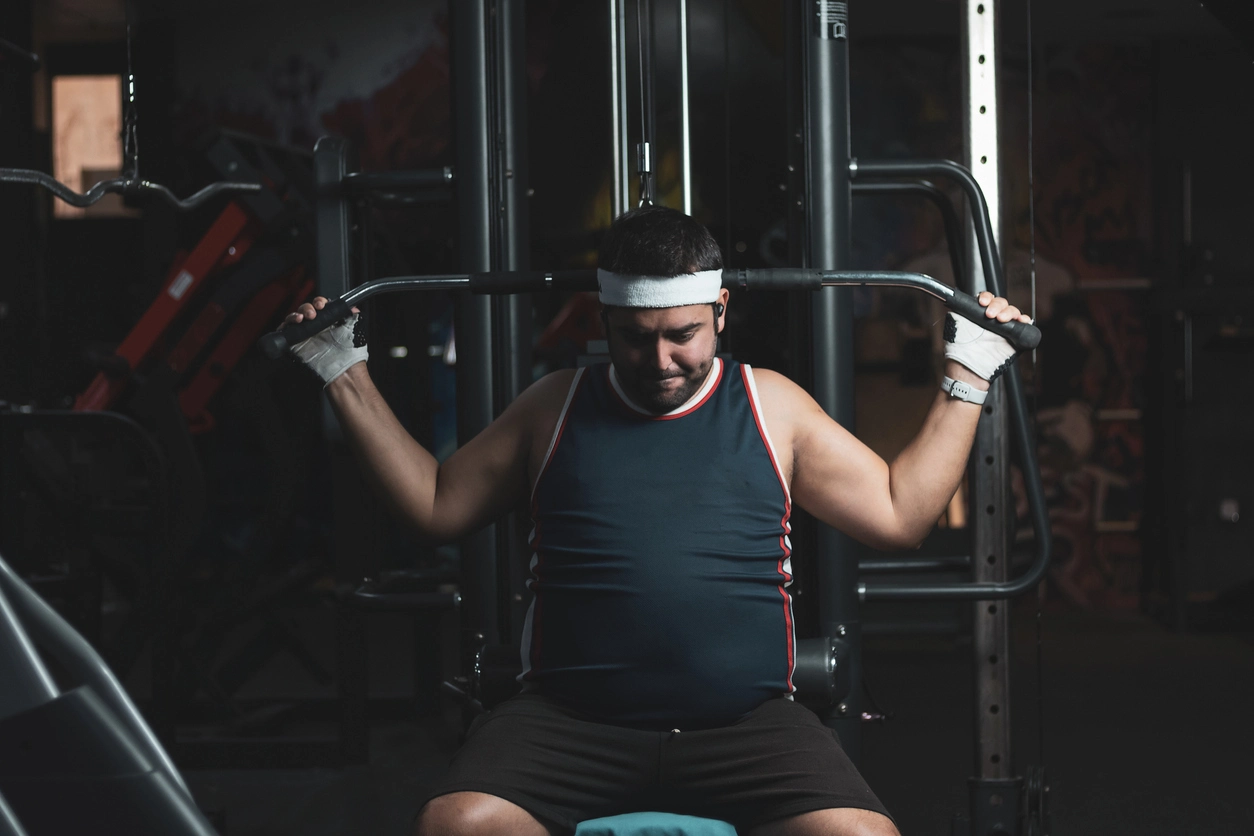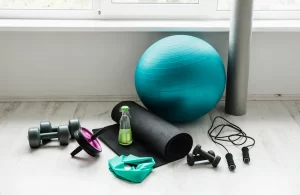Are you a newbie at the gym and wondering how often you should be hitting the gym? Worry not, because we have got you covered. It’s essential to develop a workout routine that works best for you, and one of the most critical aspects is determining how often to hit the gym.
In this article, we will guide you through everything you need to know about how often you should go to the gym as a beginner, and help you build a gym schedule that suits your goals and lifestyle.
So, let’s dive in!
The Importance of a Regular Workout Routine
Before we dive into the specifics, let’s understand the importance of having a regular workout routine. Working out regularly can help you achieve your fitness goals, whether it’s losing weight, building muscle, or just maintaining a healthy lifestyle.
Moreover, a regular exercise routine can help you develop a sense of discipline, boost your mood, and improve your sleep patterns. The benefits of a regular workout routine are numerous and can help you lead a healthier and happier life.
Benefits of Going to the Gym Regularly
Going to the gym regularly has many benefits. It can help you lose weight, build muscle, improve your cardiovascular health, and boost your mood. Regular exercise can also reduce your risk of chronic diseases such as diabetes, heart disease, and certain cancers.
Factors to Consider When Deciding on Gym Frequency
Before we dive into the best gym routine for beginners, let’s look at some factors you need to consider when deciding on gym frequency:
1. Fitness Goals
Your fitness goals play a crucial role in determining how often you should hit the gym. Are you looking to lose weight, build muscle, or increase your endurance? Each goal requires a different workout routine and frequency.
2. Current Fitness Level
If you’re a beginner, your current fitness level will also determine how often you should go to the gym. Starting with two to three sessions per week is recommended to give your body time to adapt to the new workout routine. As you progress, you can increase your gym frequency.
3. Type of Workout
The type of workout you’re following also plays a role in determining gym frequency. If you’re doing high-intensity interval training (HIIT), you’ll need to take more rest days compared to weightlifting.
4. Schedule
Your schedule is another crucial factor to consider. You need to ensure that your workout routine fits into your daily schedule and is sustainable in the long run.
5. Recovery Time
Recovery time is essential for muscle growth and injury prevention. Overworking yourself can lead to burnout and injuries, so you need to allow your body adequate recovery time.
How Often You Should Go to the Gym as a Beginner
Now that we’ve covered the factors to consider let’s look at how often you should hit the gym as a beginner.
a. Strength Training
If your goal is to build strength and muscle, you should aim to hit the gym at least three times a week. Your workout routine should focus on compound exercises such as squats, deadlifts, and bench presses. Allow for one day of rest between each session to give your muscles time to recover.
b. Cardio
If your goal is to improve your endurance, you should aim to do cardio at least three times a week. Your workout routine can include running, cycling, or swimming. Gradually increase the duration and intensity of your workouts over time.
c. Weight Loss
If your goal is to lose weight, you should aim to hit the gym at least four times a week. Your workout routine should include a mix of strength training and cardio. Incorporate high-intensity interval training (HIIT) into your workouts to burn more calories in less time.
Beginner’s Workout Plan
If you’re not sure where to start, here’s a beginner’s workout plan you can try:
- Day 1: Full body workout (squat, bench press, pull-ups, deadlift, shoulder press)
- Day 2: Rest day
- Day 3: Full body workout (squat, bench press, pull-ups, deadlift, shoulder press)
- Day 4: Rest day
- Day 5: Full body workout (squat, bench press, pull-ups, deadlift, shoulder press)
- Day 6: Rest day
- Day 7: Rest day
Gradually Increase Frequency
Once you’ve established a consistent routine of three days a week, you can gradually increase the frequency of your workouts. You can add an extra day of exercise every two to three weeks, depending on your schedule and fitness goals.
Mix It Up
Variety is essential when it comes to working out. Don’t be afraid to mix up your workouts to keep things interesting and challenge your body in new ways. You can alternate between cardio, strength training, and flexibility exercises to keep things fresh.
Listen to Your Body
It’s crucial to listen to your body and avoid overworking yourself. If you feel exhausted or sore, take a break and allow your body time to recover. Overworking yourself can lead to injuries and burnout, which can hinder your progress.
Get Adequate Rest
Rest days are just as important as workout days. Your muscles need time to recover and repair themselves after a workout. Overtraining can lead to injury and burnout, so it’s important to take rest days seriously.
Common Mistakes to Avoid
Some common mistakes beginners make when going to the gym include lifting too heavy, not warming up properly, and not following a structured workout plan. It’s important to start with light weights and focus on proper form before increasing the weight. Warming up before your workout can help prevent injury and improve your performance. Following a structured workout plan can also help you stay motivated and track your progress.
Tracking Your Progress
Tracking your progress is important to ensure that you’re making progress towards your goals. You can track your progress by taking measurements, tracking your weight, and keeping a workout log. By tracking your progress, you can see how far you’ve come and what adjustments you need to make to your workout plan.
Staying Motivated
Staying motivated is key to achieving your fitness goals. Set realistic goals for yourself and celebrate your progress along the way. Find a workout buddy or join a fitness class to stay accountable and motivated. You can also mix up your workouts to prevent boredom and keep things interesting.
FAQs
Can I work out every day as a beginner?
Working out every day as a beginner is not recommended. Overworking yourself can lead to burnout and injuries, hindering your progress. It’s crucial to allow your body adequate time to rest and recover, especially as a beginner. Aim for at least three days of exercise per week, and gradually increase the frequency over time.
How long should my workouts be?
The length of your workouts depends on your fitness goals and schedule. As a beginner, aim for workouts that last between 30 to 45 minutes per session. You can gradually increase the length of your workouts as you progress and become more comfortable with exercise.
How long should I rest between sets?
Rest periods between sets can vary depending on your fitness level and goals. Generally, rest periods of 30-90 seconds are recommended.
Should I focus on cardio or strength training?
Both cardio and strength training are crucial for a well-rounded fitness routine. Cardio exercises help improve your cardiovascular health, while strength training helps build muscle and improve overall strength. As a beginner, focus on a combination of both to get the most benefits.
Is it okay to do cardio every day?
Yes, it’s okay to do cardio every day, but it’s important to mix it up and incorporate strength training into your workout routine as well.
How do I know if I’m overworking myself?
Overworking yourself can lead to burnout and injuries. Signs that you may be overworking yourself include exhaustion, soreness, and lack of progress. It’s crucial to listen to your body and take rest days when needed.
How do I know if I’m lifting too heavy?
If you’re unable to maintain proper form or if you feel pain during your workout, you may be lifting too heavy.
How long does it take to see results from going to the gym?
Results can vary depending on your fitness level, goals, and workout routine. Generally, it can take several weeks to see noticeable results.
How often you should go to the gym as a beginner depends on several factors, including your fitness goals, current fitness level, schedule, and recovery time. Aim for at least three days of exercise per week, gradually increasing the frequency over time. Remember to focus on proper form, to listen to your body and get adequate rest to avoid burnout and injuries. With consistency and dedication, you’ll achieve your fitness goals in no time!







